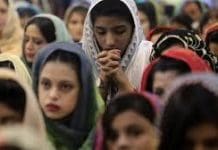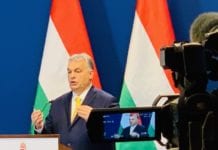By BosNewsLife Asia Service

COLOMBO, SRI LANKA (BosNewsLife)– At least a quarter of a million civilians, including Christians, remained displaced Wednesday, May 27, in Sri Lanka following the government’s final military crackdown on independence seeking Tamil rebels, but Tamil and Sinhalese Christians said they have united to overcome the crisis and show reconciliation is possible.
Sinhalese and Tamil Christians said it remains difficult for hundreds of thousands of people to rebuild their shattered lives and added they have united and work closely with the Evangelical Alliance United Kingdom “to call on [UK] Christians to pray for Sri Lanka and donate to agencies working on the ground.”
Several local and international Christians groups are already in Sri Lanka, including organizations such as a Tearfund, World Vision and The Barnabus Fund which works with the National Christian Evangelical Alliance of Sri Lanka.
Ram Gidoomal, Chair of the South Asian Concern group and a member of the Evangelical Alliance’s Council said in a statement obtained by BosNewsLife that “The only encouragement is that God’s people in Sri Lanka” and elsewhere are seen to be “working together to respond, across all the ethnic and religious barriers.”
REBEL KILLED
Last week the government said Sri Lankan soldiers killed Velupillai Prabhakaran, the man who founded the Tamil Tigers rebel movement, led it through Asia’s longest civil war and was believed to have pioneered terrorist tactics from suicide vests to sea and air attacks.
The death of Prabhakaran effectively ended the 26-year war has cost about 100,000 lives and ravaged parts of the idyllic South Asian island of 20 million, analysts and officials said.
However the Evangelical Alliance estimated there over “250,000 civilians displaced in government camps across Sri Lanka” and described them as “traumatised” while “their needs are overwhelming…” More people were killed in the war than “those who died in the last humanitarian disaster in Sri Lanka , the 2004 Boxing Day tsunami, which killed nearly 31,000 people,” the group explained.
The war added to difficulties of Sri Lanka’s minority Christians, who comprise just over six percent of the country’s mainly Buddhist population of over 21 million people. Christians were in the cross fire during the civil war and often their churches were the target of attacks by militants, apparently on both sides of the conflict.
PRACTICAL NEEDS
Pastor Antonypillai Caesar, co-ordinator of Churches Together, a network of Tamil and Sinhalese pastors, told BosNewsLife in a statement that, “The people in the camps have immediate practical needs, which we are trying to meet. We are also praying for peace [as] people have suffered so much on both sides.”
Pastor Caesar said he is one of several Britain-based based church leaders who are going to Sri Lanka in the coming weeks to be with people in the camps, “praying, comforting, cooking meals and doing whatever” they can to help. One Christian group has reportedly been supplying 8,000 meals a day to one of the camps for the last few weeks.
Churches leaders have also suggested that Christians can play a role in reconciliation talks. “It is the hour for the Church to demonstrate the true love, unity and oneness in Christ across every possible barrier, said Pastor Surekha Hulugalle of Living Waters Foursquare Church in London , who is involved in sending aid to the troubled nation.
“The whole country has suffered and the Church has the responsibility to demonstrate the way towards a lasting peace. Working and supporting each other through collective prayer and immediate practical support for those affected in the Wanni area would be the immediate priority.”
The Evangelical Alliance General Director, Steve Clifford, stressed that British churches already gave “very generously to relieve suffering in Sri Lanka after the tsunami” and that had no doubts about “ similar generosity to all those suffering and displaced by the recent conflict,” despite the current economic crisis.
“After 25 years of civil war, feelings are intense on all sides and there are deep and complex issues to be addressed in the search for lasting peace. I would urge churches and individuals to pray for the situation, particularly on the Global Day of Prayer on 31st May 2009.”








